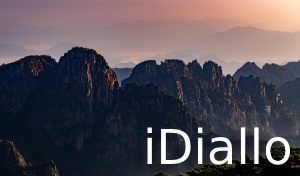We're often told, “Don’t judge a book by its cover.” But in today's world, we have no choice but to. There's simply too much to consider: too many videos, articles, job applications, emails, and products, and not enough time. Our biology is even wired for this; we've evolved to make fast judgments as a survival mechanism. This isn't prejudice, it's pattern recognition, a necessary shortcut in a world overflowing with information. It only becomes prejudice when we refuse to change our minds, even when deeper evidence contradicts that first impression.
The issue isn't a scarcity of information anymore; it's a firehose. Ask for a book recommendation, and you get a thousand. Want to learn about nutrition? There are 10,000 YouTube videos, most of which are noise. Need to hire one candidate? Expect 2,000 resumes in 48 hours.
In this overwhelming landscape, the first layer, the cover, matters immensely. The thumbnail, the title, the subject line, the first sentence, the profile picture, these are now proxies for quality. They weren't designed to be, but when you're overwhelmed, you adapt.
The Cover as a Filter
This isn't about laziness; it’s triage. You can't possibly read the millions of books published annually, let alone a hundred. So, what do you do? You skim covers. You scan blurbs. You look at the title, the font, the layout. You swipe.
The same applies to videos. If a thumbnail screams "clickbait," you skip it. It might be the most profound video on the topic, but the odds aren't in its favor. The "cover" failed its job, and that's enough reason for you to pass. It's not fair, but fairness is expensive. And we're constantly operating on borrowed time.
Hiring by the Cover
Consider the hiring process. When a job is posted online, employers receive thousands of applications. No one has the time to read every resume thoroughly. So, we do what everyone does: we judge by the cover.
First, a quick filter: minimum 5 years of experience. Still too many. Next, keyword matching. Still hundreds. Then, you start scanning names (you might want to skip "Soham Parekh"), formats, and layouts. You begin judging design choices, bullet points, and even email addresses. It's messy, and it’s not entirely objective. But without these rapid filters, we'd simply drown. Only when we narrow it down to a shortlist can we afford the luxury of deeper evaluation.
The Cost of Missing Hidden Gems
Yes, there's a trade-off. We inevitably miss out on hidden gems: the brilliant person who doesn't know how to format a resume, the profound video with a weak thumbnail, or the powerful book with an amateurish cover.
However, the cost of not judging quickly is far greater. We risk wasting precious time, attention, and energy on things that aren't worth it. And time is the one resource we can never get back.
Can AI Save Us? Not Really.
Many suggest AI as a solution to this filtering problem. Let the machine read and watch everything, recommending only what's truly valuable. Sounds promising, but in practice, it's deeply flawed.
Look at YouTube, for example. The algorithm doesn't prioritize what's important or valuable to you. It optimizes for engagement, which often translates to outrage, sensationalism, or endless distraction. AI serves the platform’s goals, not yours.
And here’s something an AI will almost certainly never tell you: "Right now, there’s nothing worth your time. Go do something else." That would be detrimental to monetization. The problem isn't just bad recommendations; it's misaligned incentives. The AI's goal isn't your clarity or well-being; it's your attention. This makes it a poor partner for decision-making in a world where attention is your most precious resource.
The New Rule: Judge Quickly, Stay Open
So, maybe the old rule "don’t judge a book by its cover" has simply evolved. The new reality is: judge quickly, but remain open to changing your mind. This offers a practical compromise between the need for speed and the desire for depth, between efficiency and fairness. Covers now matter. Thumbnails matter. First impressions matter. Not because they tell the whole story, but because they help us decide whether to invest our most precious resource, our time, to explore more deeply.
The Deeper Solution: Reframe the Problem
Beyond quick judgments, there's an even more powerful approach: reframe the problem entirely. You don't have to sift through millions of profound books, videos, or resumes yourself.
Instead of trying to systematically filter the best of an impossible quantity, leverage the power of focused attention and trusted curation. For books, ask a friend who loves to read for a recommendation; they've already invested the time and can be your best guide. Occasionally, pick up a random book just for the serendipity of discovery.
The same applies to hiring. You're never going to find "the best" candidate from thousands by simply adding more filters. Instead, try a different strategy: pick a candidate at random and truly pour through their resume. Ask for a direct recommendation from an acquaintance whose judgment you trust. Yes, you'll miss out on others, but you will find someone truly fit for the job by dedicating deep attention to a select few.
For videos, articles, or any content, the principle holds: there's just no substitute for the time you spend on individual items. You don't have to consume everything; you simply don't have the time. Be intentional, lean on trusted human filters, and dive deep into the few things you choose.
In a world designed to overwhelm, the ability to make quick, initial judgments is a vital survival skill. But true clarity and valuable discovery emerge not from endlessly sifting through everything, but from intentionally choosing where to invest your limited time. It means embracing the necessary shortcuts of the "cover," while simultaneously seeking out focused dives and human-powered curation. Your attention is your most precious currency. Spend it wisely, not just quickly.



Comments
There are no comments added yet.
Let's hear your thoughts